Shower Floor Tile Installation
Fill in your details below - we'll reach out to schedule a free quote!
We will get back to you as soon as possible
Please try again later
Local Shower Floor Tile Installation
At JD Flooring, we specialize in shower floor tile installation.
Our tile flooring contractors have years of experience installing tile in showers, and we're dedicated to providing our customers with the highest quality workmanship.
We use only the best materials and techniques, and we take care to pay attention to every detail.
Because we are a local company, we can offer you personalized service that you won't find at a big-box store.
So if you're looking for a shower floor tile specialist, look no further than JD Flooring.
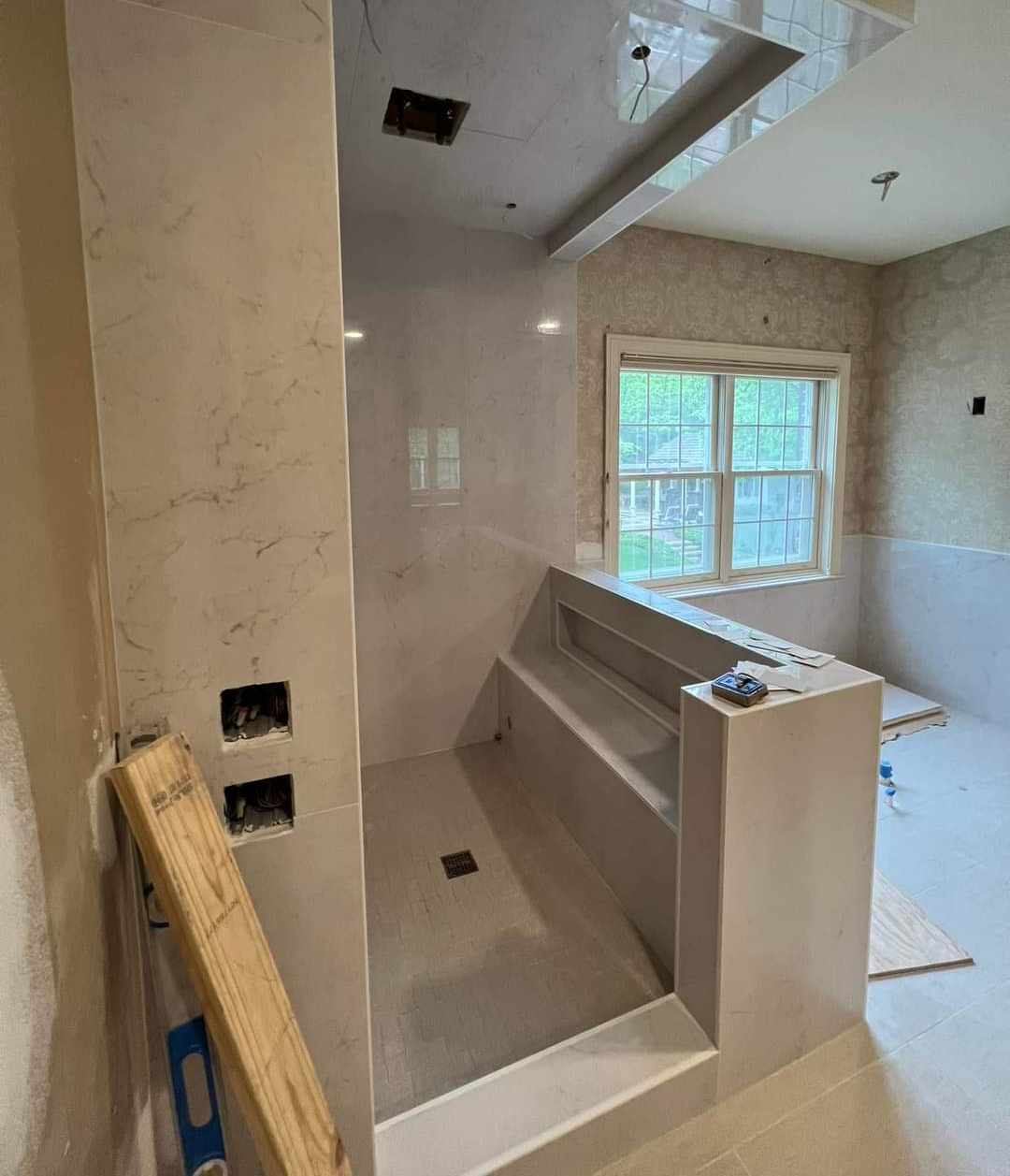
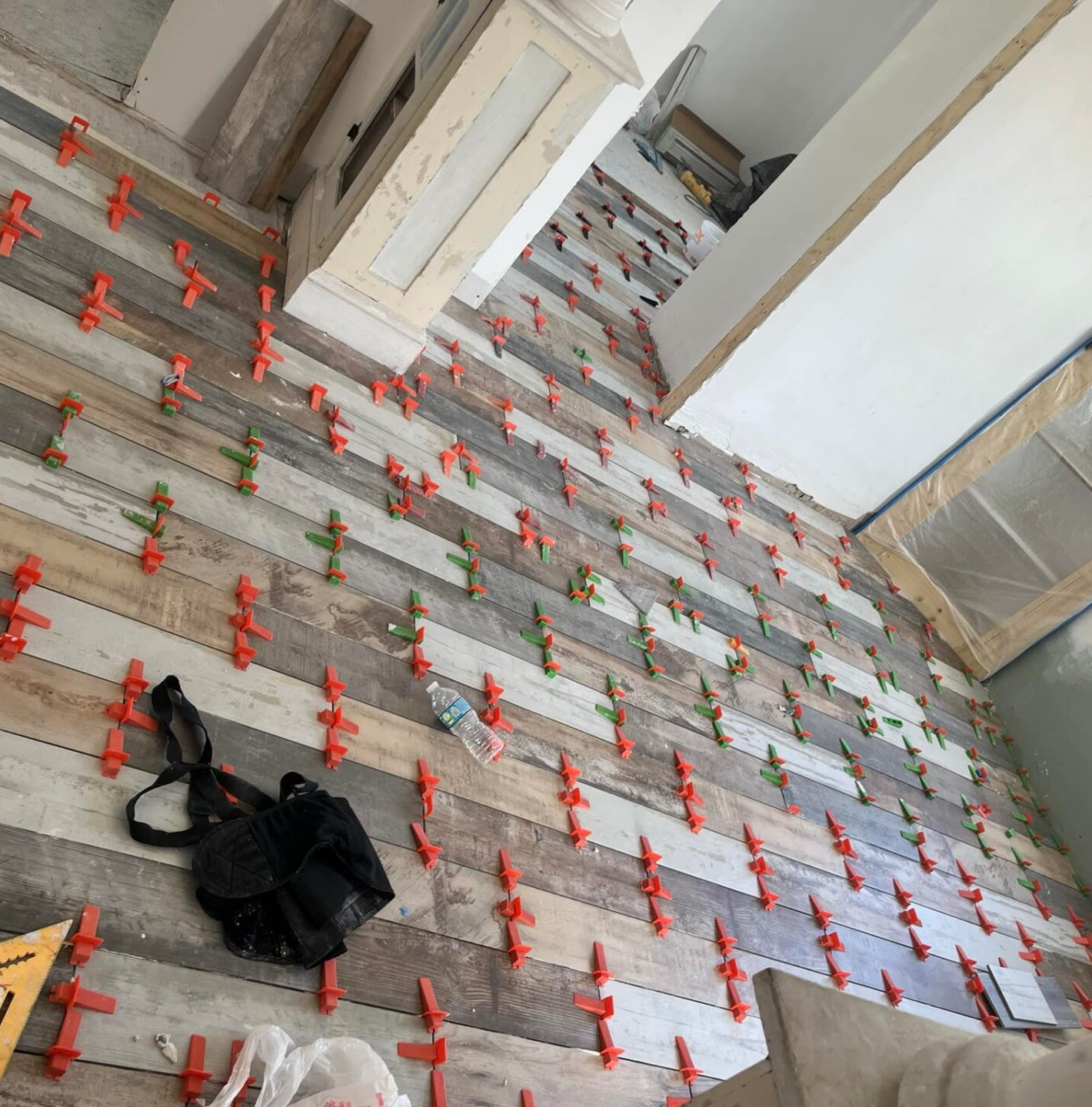
Shower Floor Tile Installation Company
When it comes to installing hardwood floors, you want to be sure that the job is done right.
JD Flooring works with skilled and experienced contractors who are licensed and insured.
We have installed all kinds of hardwood floors in all kinds of settings, so you can be confident that your floor will be installed correctly.
So if you're looking for a high-quality hardwood floor installation, trust the experts at JD Flooring.
Shower Floor Tile Installation Contractors
Tile is durable and easy to clean, making it an ideal choice for a wet environment like a shower.
Plus, there are many different types, colors, and designs of tile available, so you can create a unique look for your bathroom.
If you're not experienced in tile installation, however, it's best to leave this job to the professionals.
That's where JD Flooring comes in.
We work with licensed and insured shower floor tile installation contractors who will make sure your shower looks great and is properly installed.
Contact us today to get started on your bathroom remodel!
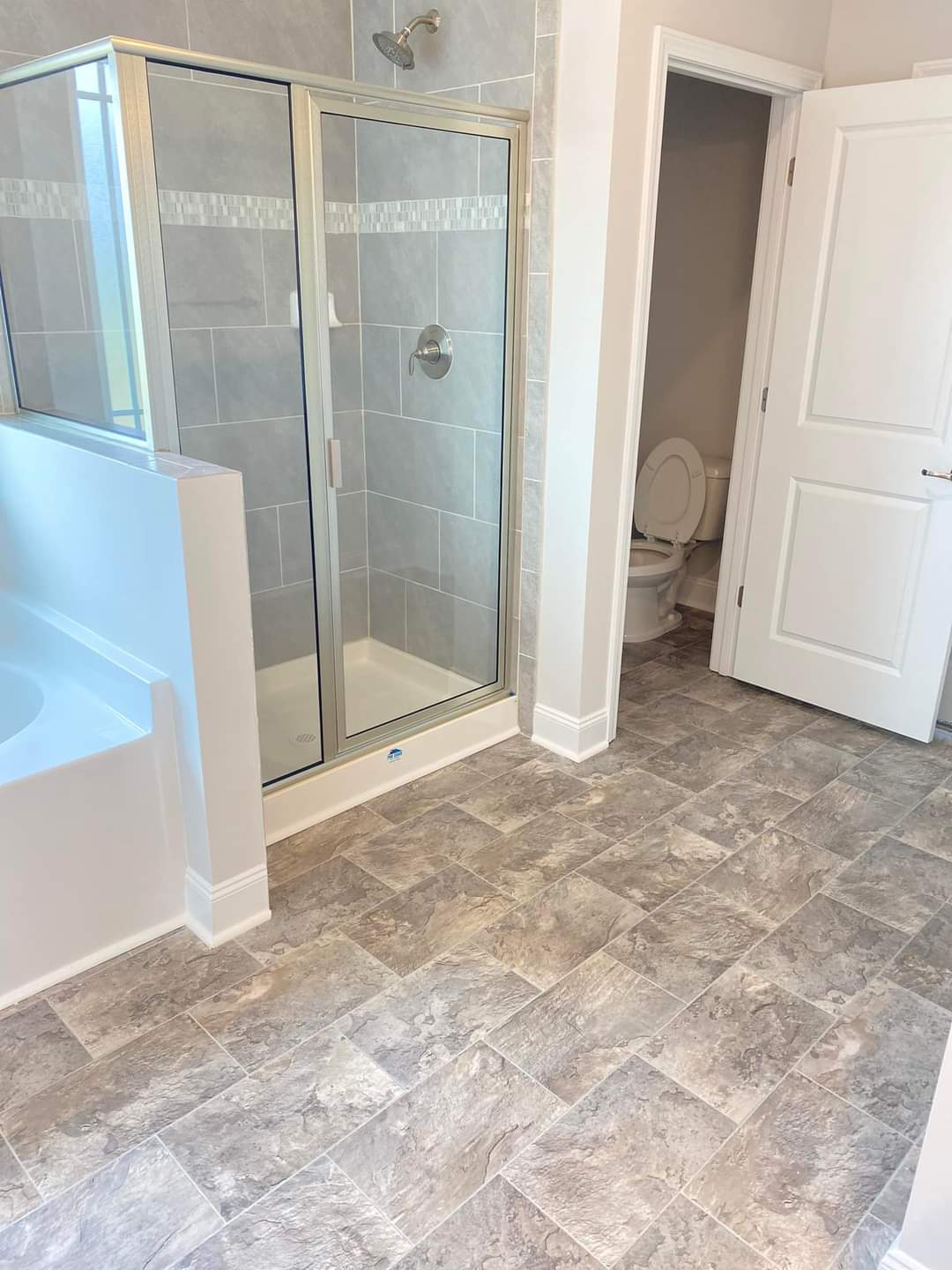
Shower Floor Tile Installation Process
Tiling a shower is a fairly complicated process - even some 'trained professionals' make many mistakes in the shower tile process.
To your benefit, we go above and beyond to do everything properly in the process of tiling a shower or bathroom.
Our standard procedure is complicated and it takes into account every necessary detail to get the job done right.
Choose Your Tile Products
Step one in the shower floor tile installation process is to choose the tiles & design you'd like for your project.
Once you've chosen your tile, we'll help you calculate the amount you need for your project.
This is important because planning the tile layout is a crucial step in the process.
It also allows us to work with you to choose the right grout color.
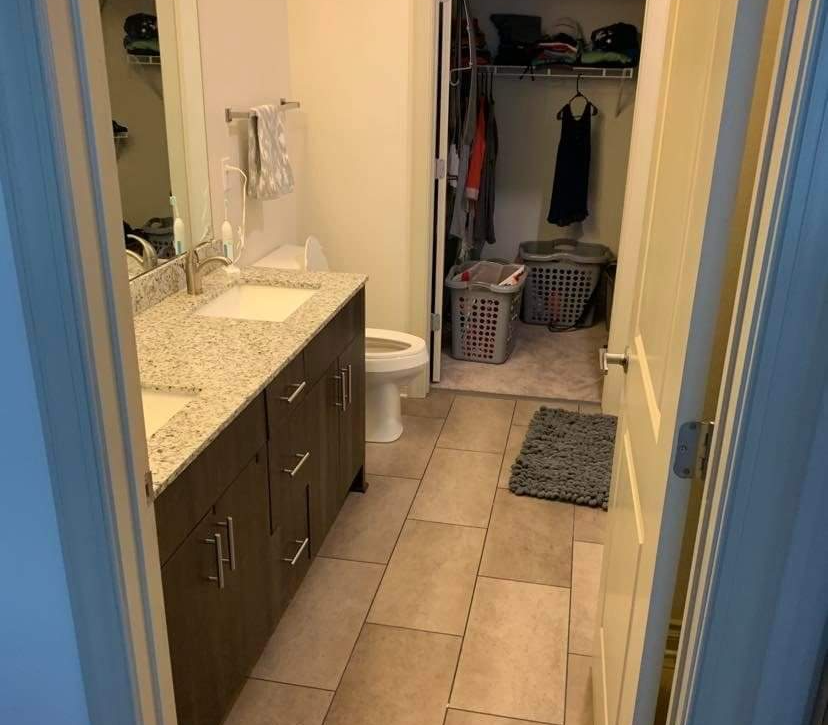
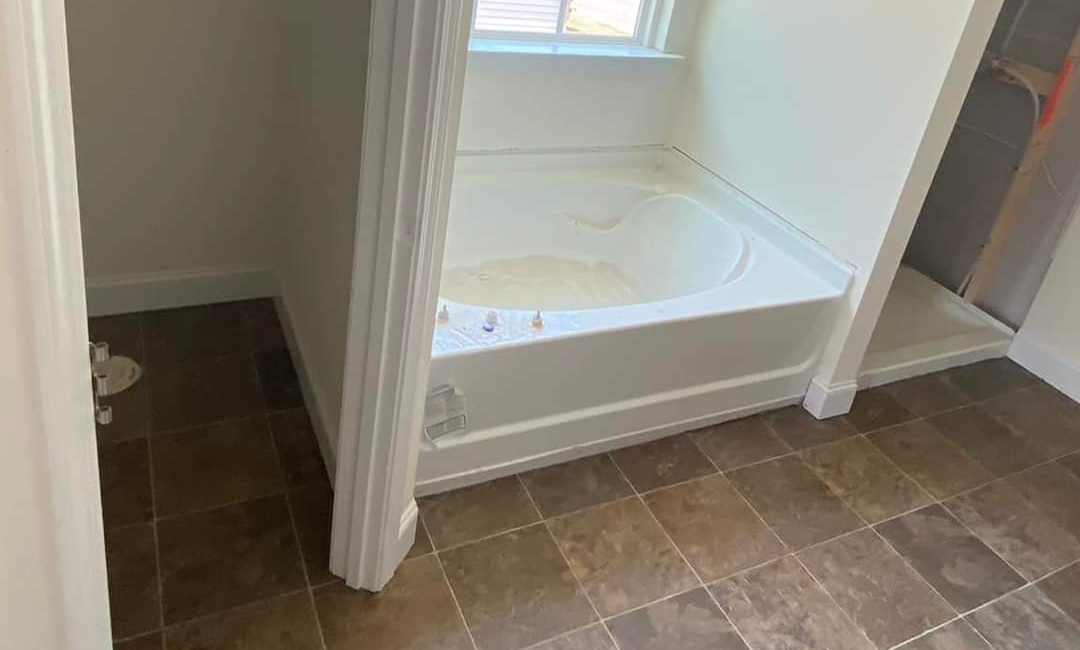
Install Backer Board
After you've chosen your tile and grout, we'll install the backer board and membranes.
This is an important step because it will help to prevent water damage behind the tiles.
Doing this step properly will prevent future problems with leakage, mold - and ultimately, will prevent costly repairs.
Prepare the Shower Floor
Once the backer board is installed, we'll prepare the shower floor for tile installation.
This includes making sure the surface is level and smooth.
We'll also clean the area thoroughly to remove any dirt or debris that could interfere with the tile adhesive.
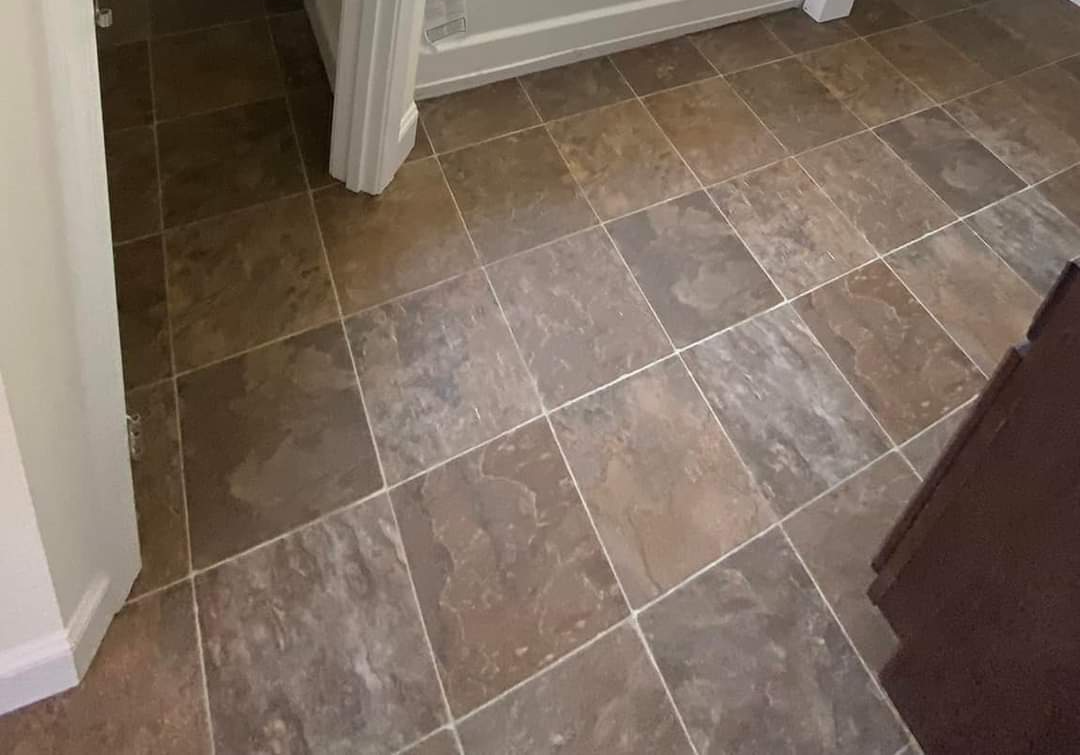
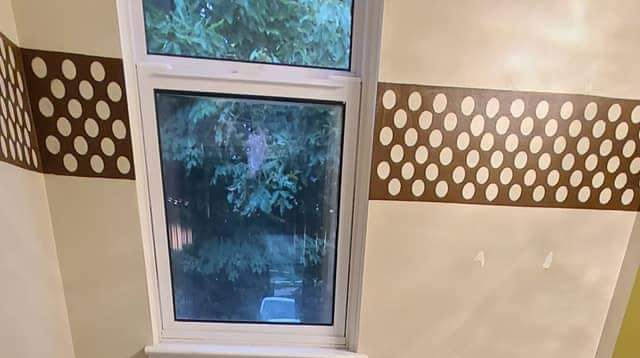
Prepare the Drain
Next, we'll prepare the drain for installation.
This includes making sure the drain is properly sealed and that there are no leaks.
We'll also clean the area around the drain to remove any dirt or debris.
Apply Thin-Set
After the drain is installed, we'll apply thin-set mortar to the surface. This is a special type of adhesive that will help to keep the tiles in place.
We'll also use a tool called a notched trowel to spread the mortar evenly across the surface.
Layout the Tile
Once the thin-set is applied, we'll start laying out the tile.
We'll use a level to make sure the tiles are even and we'll space them evenly apart.
We'll also make sure the tiles are aligned with the drain.
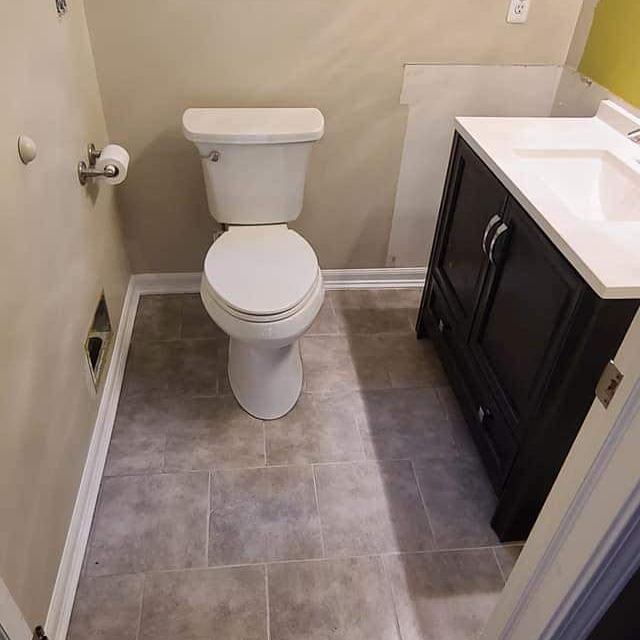
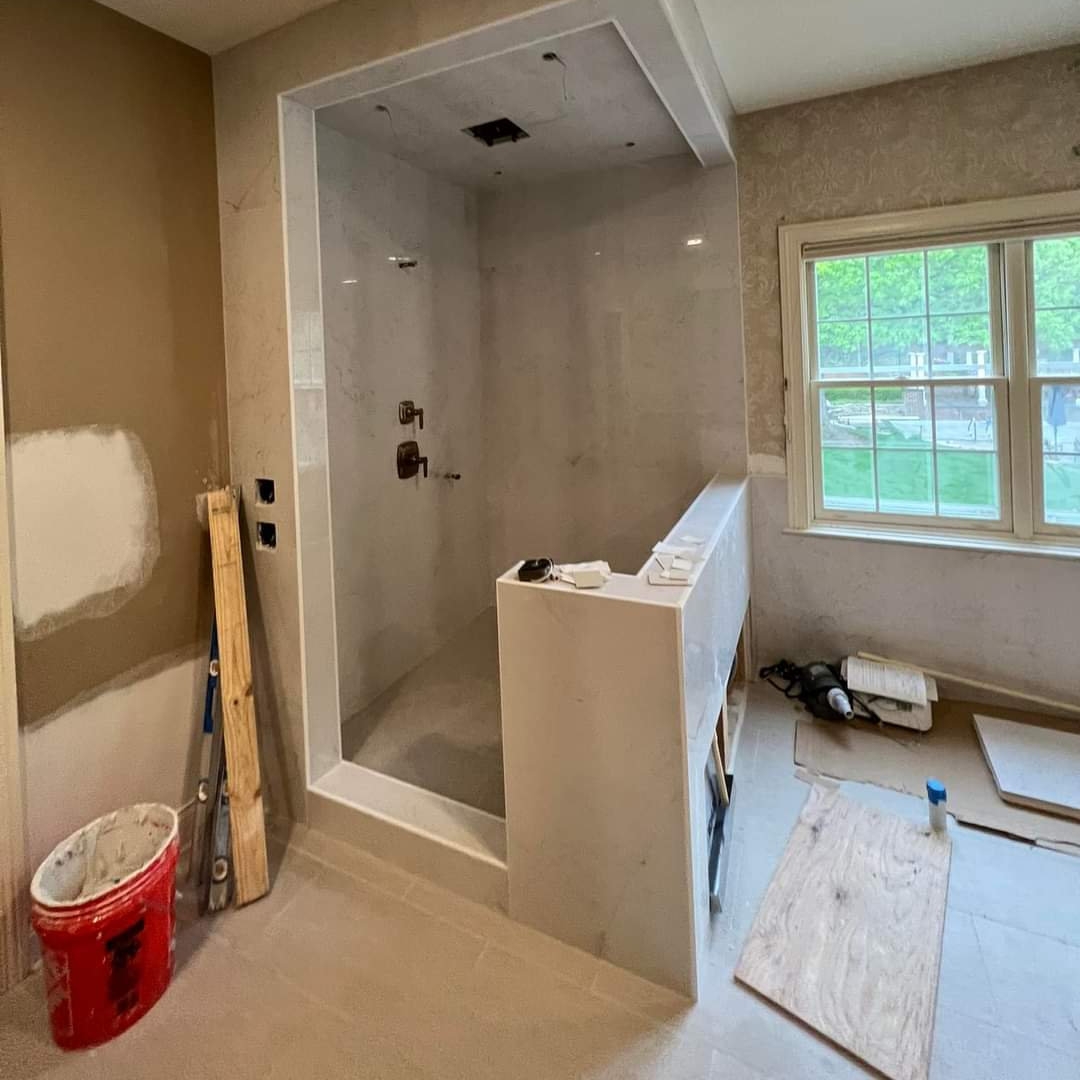
Set the Tile
After the tile is laid out, we'll set the tile in place. We'll use a tool called a wet saw to cut the tiles to fit around the drain.
We'll also apply pressure to the tiles to make sure they're properly adhered to the surface.
Preparation for Grout
After the tile is set, we'll prepare the area for grouting.
This includes wiping away any excess mortar and cleaning the surface of the tiles.
We'll also apply tape to the areas where we don't want the grout to spread.
Applying Grout
Once the area is prepared, we'll apply grout to the surface.
We'll use a tool called a rubber float to spread the grout evenly across the surface.
We'll also make sure to get into all of the nooks and crannies.
Finishing & Clean Up
After the grout is applied, we'll remove the tape and clean the surface of the tiles.
We'll also apply a sealer to the grout to help protect it from water damage.
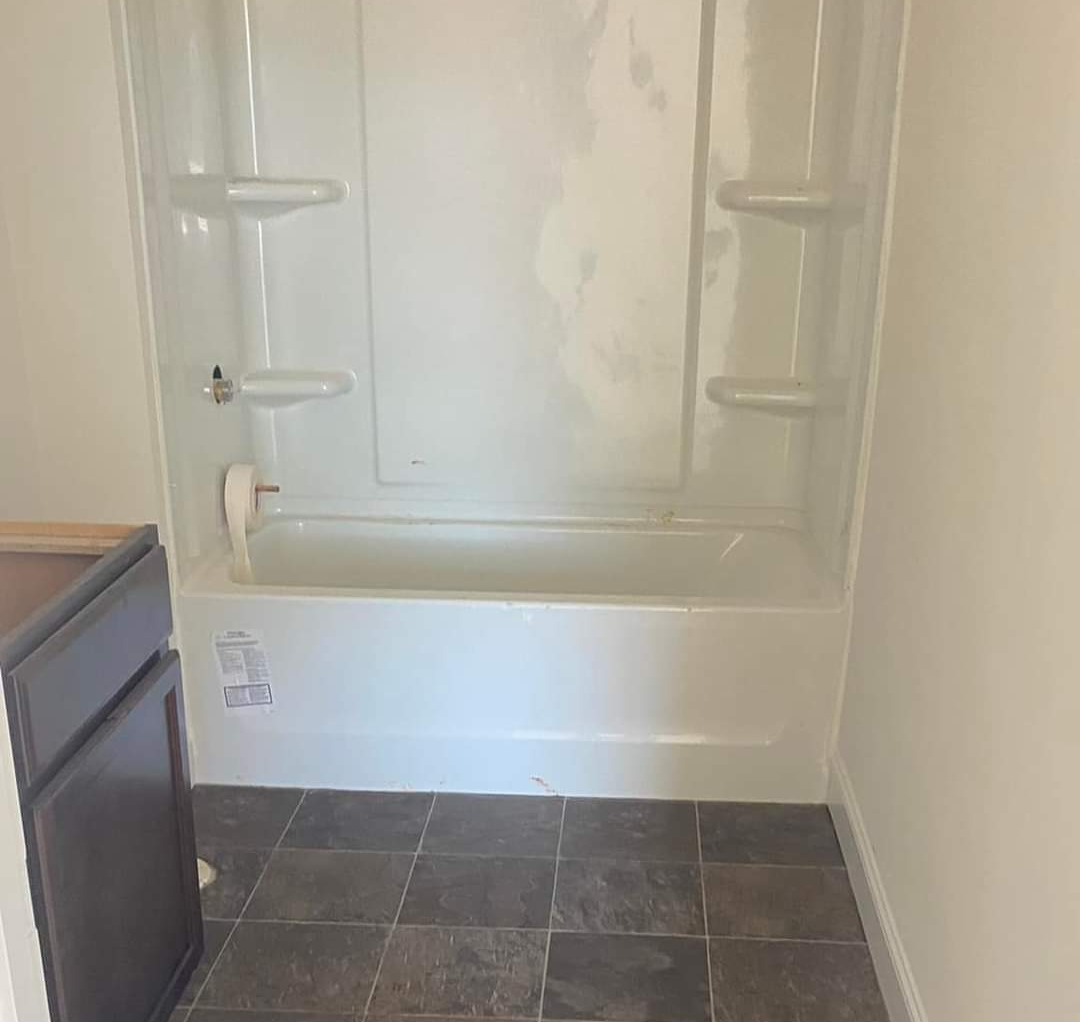
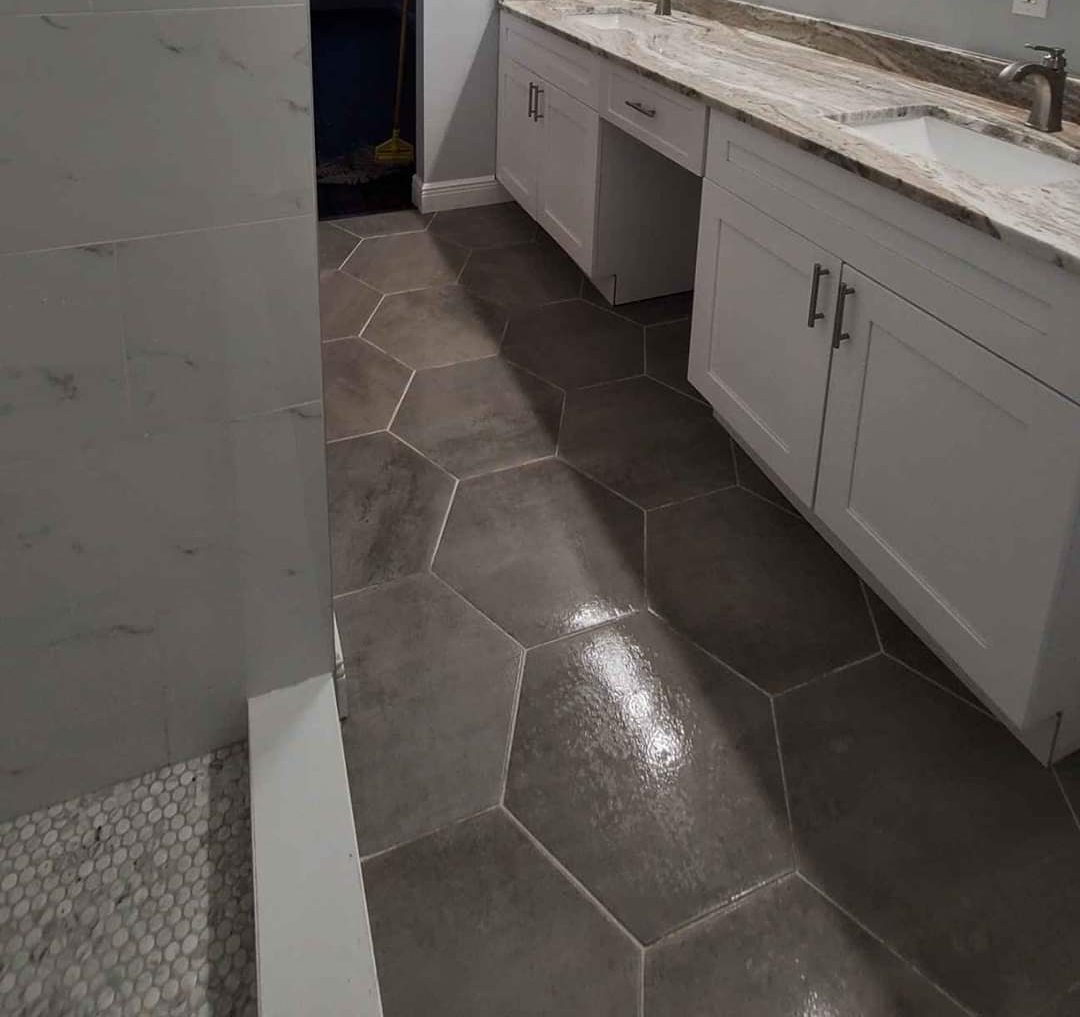
Types of Shower Tiles
There are a number of different types of shower tiles available on the market, including porcelain, ceramic, glass, and stone.
Making the right decision on what tile is right for you starts by understanding what's unique about tile types.
For instance, some types of tile are more durable than others and can withstand more wear and tear. Other tiles are more slip-resistant, making them a good choice for shower floors.
And still others are more resistant to mold and mildew, making them a good choice for damp environments.
Glass Shower Tiles
What makes glass shower tiles unique is that they can be made from recycled glass.
This makes them a more environmentally-friendly option.
Glass shower tiles are also available in a variety of colors and styles, making them a good choice for those who want to add some personality to their space.
However, glass tiles can be more expensive than other types of shower tiles.
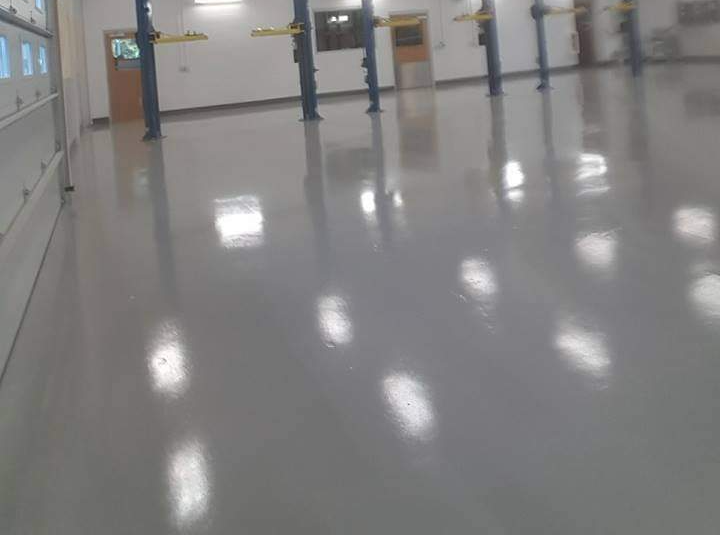
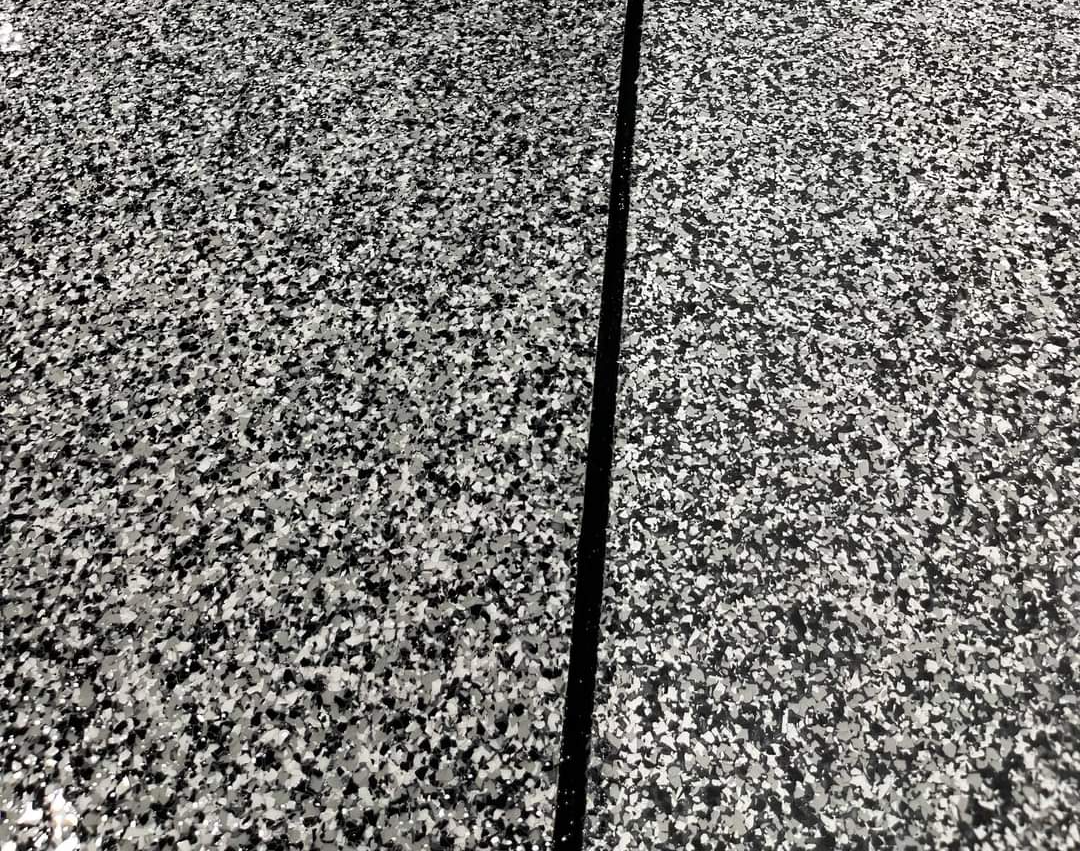
Marble Shower Tiles
Marble shower tiles are a classic choice that will never go out of style.
Marble is a natural stone that is available in a variety of colors and patterns.
It's also a very durable material, making it a good choice for high-traffic areas.
However, marble can be a more expensive option than other types of shower tiles.
Porcelain Shower Tiles
Porcelain shower tiles are a good choice for those who want the look of stone or marble without the high price tag.
Porcelain is a man-made material that can be made to look like a variety of natural materials.
It's also very durable and resistant to stains, making it a good choice for shower floors.
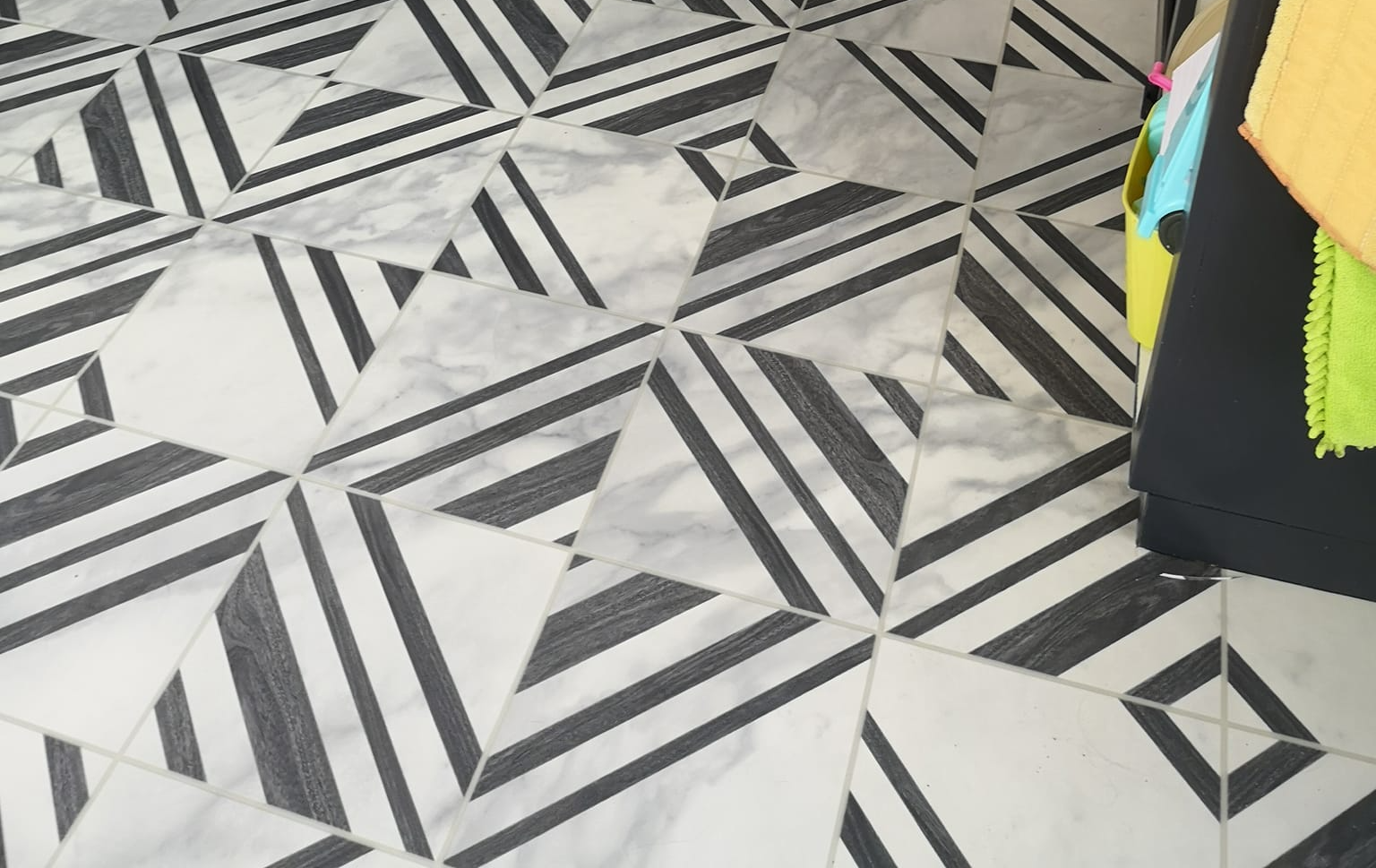
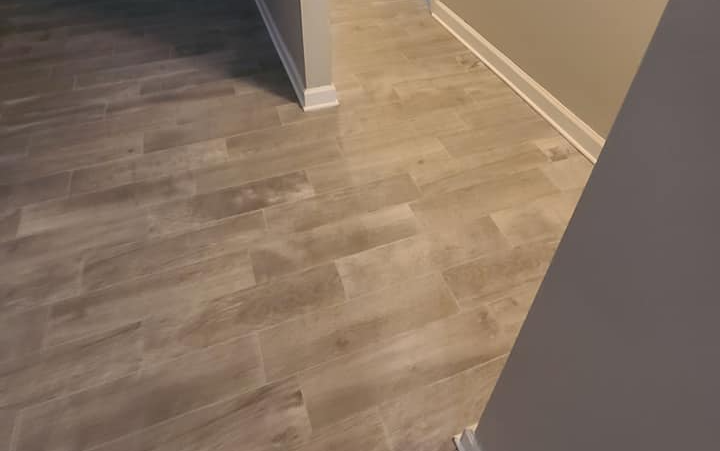
Granite Shower Tiles
Granite shower tiles are a good choice for those who want the look of stone without the high price tag.
Granite is a natural material that is available in a variety of colors and patterns.
It's also very durable, making it a good choice for high-traffic areas.
Natural Stone Shower Tiles
Natural stone tiles come in a variety of materials, including slate, and sandstone.
They're a good choice for those who want a unique look for their space.
Natural stone tiles are also very durable and resistant to stains, making them a good choice for shower floors.
However, natural stone tiles can be a more expensive option than other types of shower tiles.

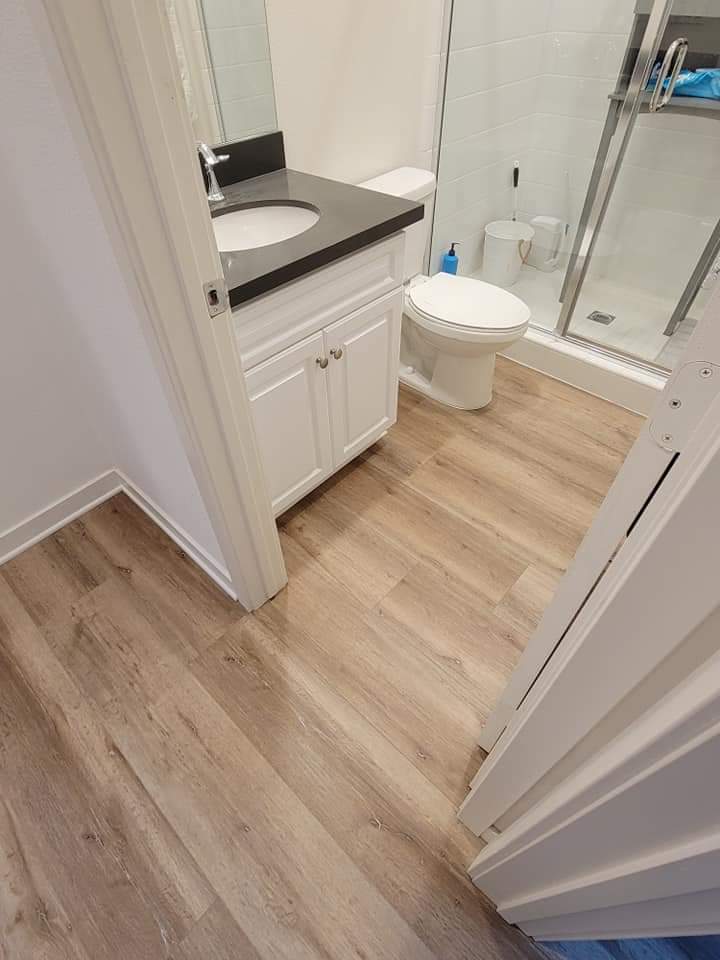
Benefits of Shower Floor Tile Installation
Shower floor tiles not only add style and beauty to your bathroom but provide several practical benefits as well.
They are durable and long-lasting, easy to clean, slip-resistant, and mildew-resistant.
With proper care and maintenance, shower floor tiles will last for many years and continue to look great. In addition to their aesthetic appeal, shower floor tiles can also help improve the value of your home.
If you are planning to sell in the future, potential buyers will appreciate the upgraded look of your bathroom.
So, not only do shower floor tiles improve the appearance of your bathroom but also add practical benefits and potentially increase your home’s value.
How to Maintain Shower Tile
Here are a few tips for maintaining shower tile:
- Start by sweeping or vacuuming the floor to remove any loose dirt or debris.
- Then, using a mild soap and a soft-bristled brush, gently scrub the tile and grout. Be sure to rinse the area well afterwards.
- For tougher stains, you may need to use a slightly more abrasive cleaner, such as diluted vinegar or hydrogen peroxide. Always test these cleaners in an inconspicuous area first to ensure they will not damage the tile.
- Once the tile is clean, apply a sealant to the grout to help prevent future staining. Reapply the sealant every few months, or as needed.
By following these simple tips, you can keep your shower tile looking like new for years to come.
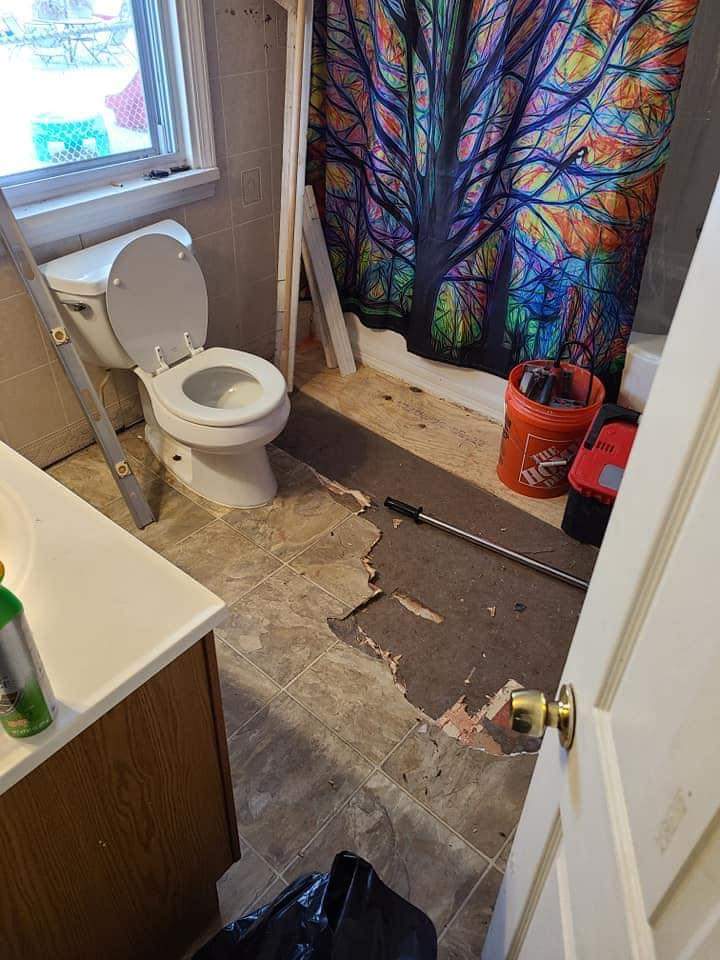
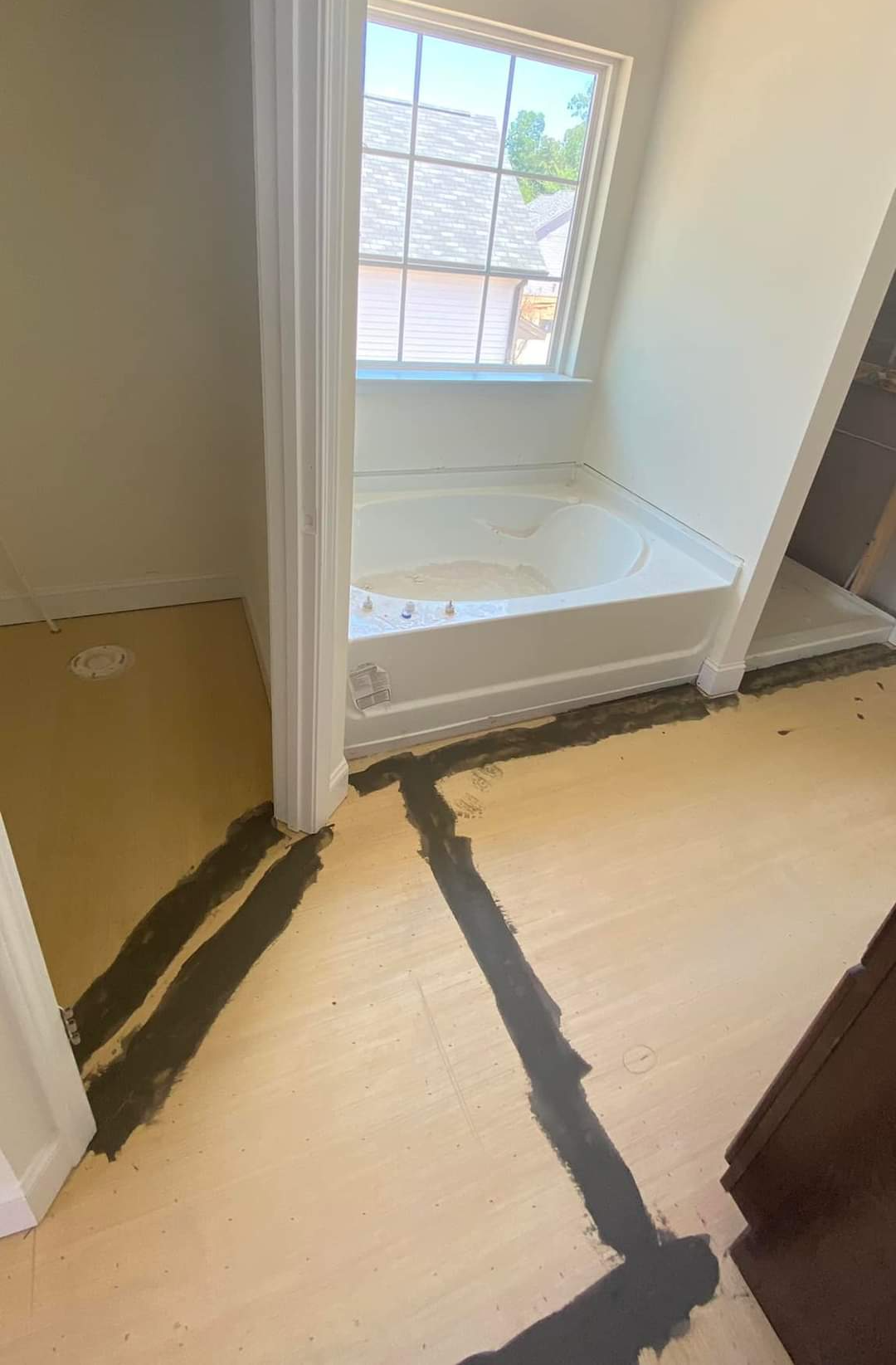
How Much Does Shower Floor Tile Installation Cost?
The cost of installing shower floor tiles varies depending on a number of factors, including the size and shape of the shower, the type of tile used, the complexity of the design, and the experience of the installer.
In general, larger showers with more complex designs will cost more to tile than small showers with simple designs.
The type of tile can also affect the cost, with ceramic or porcelain tiles being less expensive than natural stone or mosaic tiles.
Likewise, installers with more experience will typically charge more than those who are just starting out.
By taking all of these factors into account, you can get a better sense of how much it will cost to tile your shower floor.
Shower Floor Tile Installation FAQs
How do you waterproof a shower floor before tiling?
There are a few different ways to waterproof a shower floor before tiling.
One option is to use a waterproofing membrane, which is a thin layer of material that is applied to the floor before tiling.
This helps to create a barrier between the tile and the subfloor, preventing water from seeping through. Another option is to use a water-resistant grout, which is mixed with a waterproofing agent to create a barrier around the tile.
Finally, you can also choose to seal the tile itself with a waterproof sealer. This helps to protect the tile from water damage and makes it easier to clean.
How do you prepare a shower floor for tile?
When preparing a shower floor for tile, the first step is to remove any existing tiles, as well as any mortar or adhesive.
Next, the surface should be cleaned thoroughly and any holes or cracks should be filled. Once the surface is smooth and level, a waterproofing barrier should be installed.
This will help to prevent water damage and mold growth.
Finally, the tile can be installed using mastic or another type of adhesive.
Why is it so essential to tile your bathroom?
There are a number of reasons why tiling your bathroom is such an essential task.
Firstly, tiles are easy to clean and maintain. They resist stains and water damage, and they don't require regular repainting or polishing.
Secondly, tiles are extremely durable. They won't chip or crack like other materials, making them ideal for high-traffic areas like bathrooms.
Thirdly, tiles can add both style and value to your home. With so many different colors, patterns and textures to choose from, you can create a bathroom that is uniquely your own.
Tiling your bathroom is not only an essential task, but it can also be a fun and creative way to express your personal style.
What is the best way to clean a ceramic tile shower?
Ceramic tile is a popular choice for showers because it is durable and easy to clean. However, soap scum and mineral deposits can quickly build up on ceramic tiles, making them look dull and difficult to clean.
The best way to clean a ceramic tile shower is to use a gentle, non-abrasive cleaner and a soft sponge or cloth. For stubborn soap scum or mineral deposits, you may need to use a mild abrasive cleaner.
Be sure to rinse the tiles thoroughly after cleaning to remove any residue. With regular cleaning, your ceramic tile shower will remain looking like new for years to come.
How long does it take to lay the tile in a shower?
Laying tile in a shower can be a time-consuming project, depending on the size and layout of the shower.
For a standard shower, it typically takes between two and four days to complete the tile work. This includes time for measuring, cutting, and laying the tile, as well as waiting for the grout to set.
However, if the shower is larger or more complex in design, it may take longer.
Reach Out For a Free Quote
Send us a message using the form below, and we’ll get back to you as soon as we can.
We will get back to you as soon as possible
Please try again later
Copyright © 2015-2022 JD Flooring Installers | All rights reserved
Contractor Website by Curated Leads
